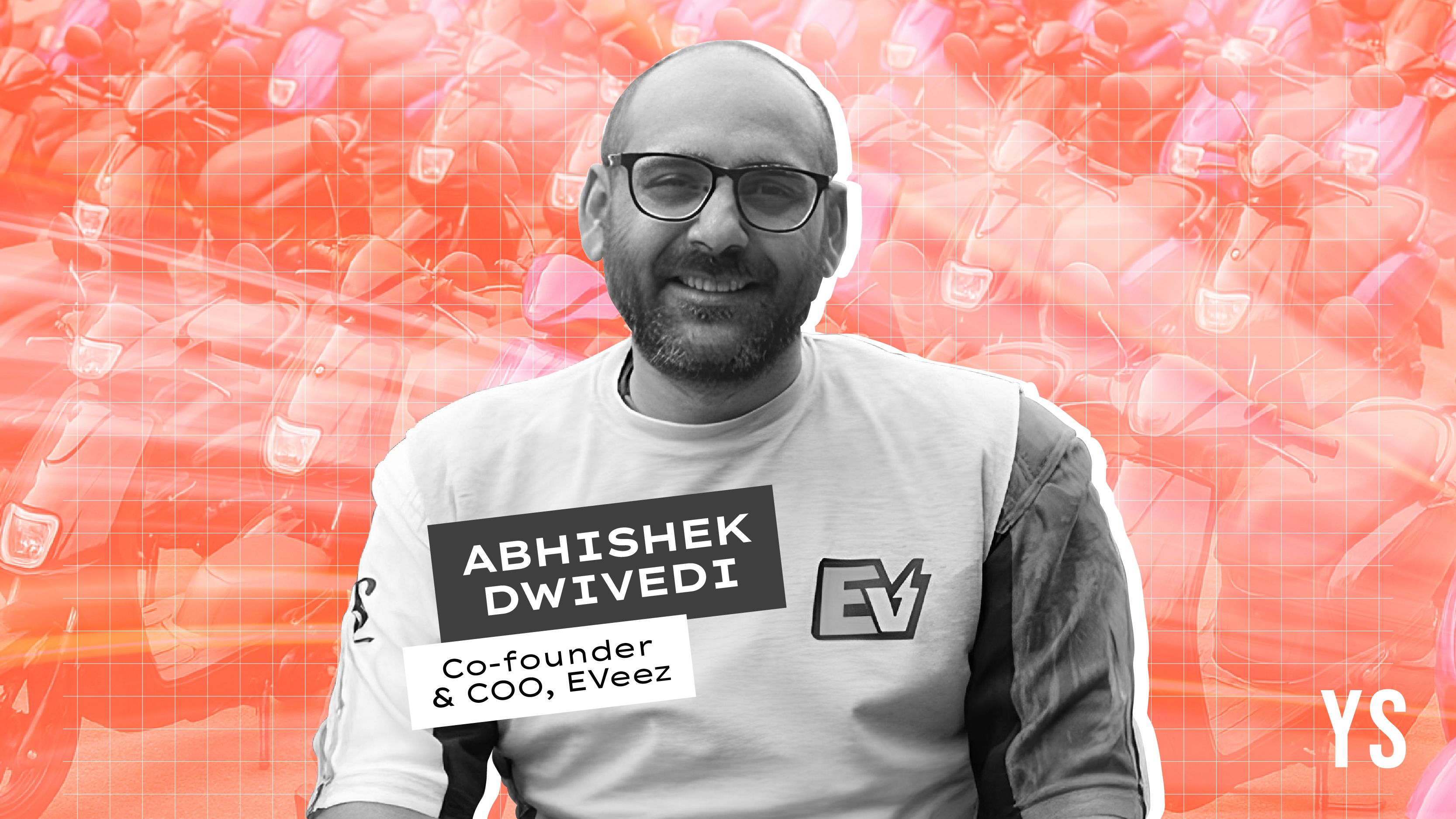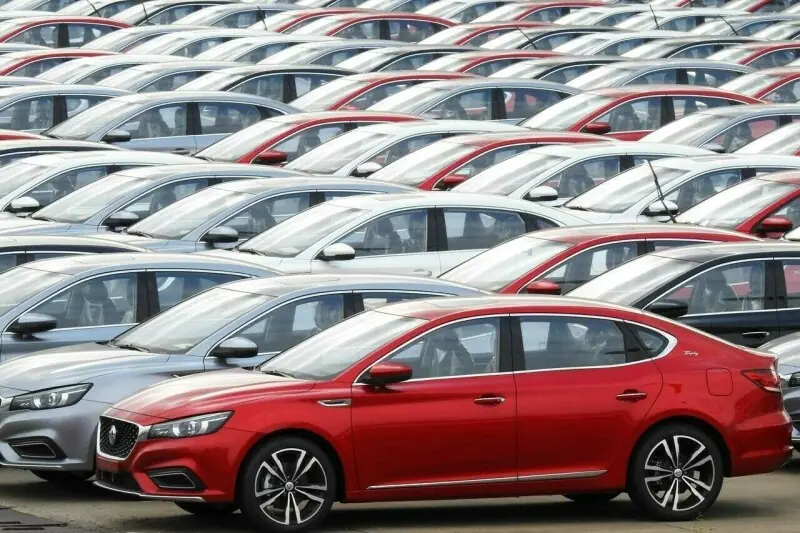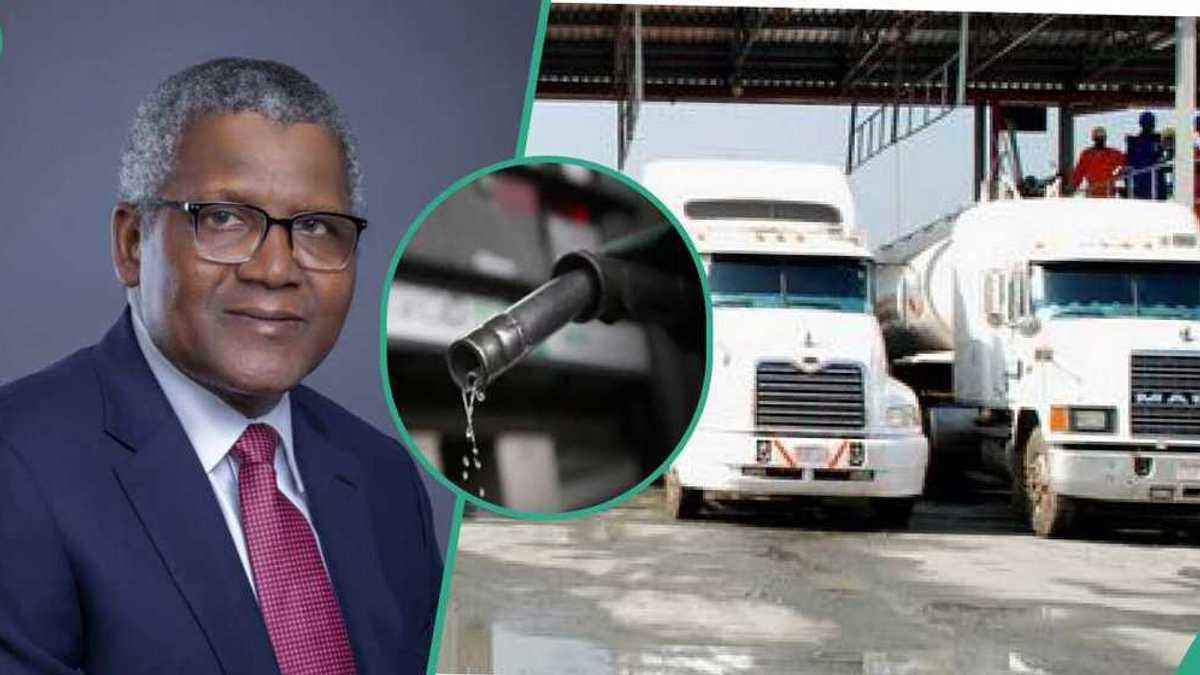By Megha Ghosh
Copyright yourstory

India’s multitude of gig workers, including delivery riders and technicians, find it tough to own a vehicle. Loans are difficult to get, jobs are often unstable, and migration is rampant. Abhishek Dwivedi saw this as an opportunity to make mobility easier and more accessible. “The solution had to be shared and electric-based because it’s easier to access for a startup,” says Dwivedi, Co-founder of an electric mobility-as-a-service (eMaaS) startup.
EVeez was co-founded by Dwivedi and Gaurav Rathore in 2019. Dwivedi, a mechanical engineer with a master’s in strategy design from the National Institute of Design, had previously worked with Initiator, a design services platform.
The idea of electric mobility took shape when Rathore came back from the Alps, and he was amazed that an electric cycle helped him finish a two-day trip in just one day. “I thought this was exciting and should be brought to India,” Dwivedi says. In 2018, they first launched Let’s Play, an e-bike rental service for travellers in Manali. Its success and the mobility struggles of gig workers led them to set up EVeez, a complete electric mobility solution for India’s delivery workforce.
EVeez (EVs made easy) is based in Gurugram and currently runs operations in 17 cities, from Amritsar to Bengaluru. The startup’s goal is to make electric two-wheelers affordable and easy to access, especially for gig workers who are quick to adopt new technology but often face financial or job-related challenges.
“Gig workers are early adopters. Our customers aren’t just delivery agents; we serve anyone who needs a two-wheeler: delivery agents, surveyors, technicians, or plumbers,” Dwivedi says.
The EVeez model
EVeez operates on a B2B2C model, serving individual customers and platform partners. Currently, it’s working with 5,000 users and 50 B2B clients, which include Flipkart, Rapido, Uber, Zomato, and Swiggy. Its orange-coloured e-bikes can be easily spotted on Indian roads and act as moving ads for the brand.
The core of EVeez’s offering is a subscription-based model. Customers can rent electric bikes based on what they need. Its model offers monthly and weekly plans, offering flexibility depending on the duration of their vehicle rental. Plans range from Rs 4,500 per month for 60 km to higher mileage options, depending on the job requirements or user needs.
“It’s like Tata Sky; subscribe only to what you need,” Dwivedi tells YourStory.
EVeez’s subscription also covers maintenance and spare parts, such as brake pads and tyres. “We change it for free. There’s no labour charge for any kind of repair work,” Dwivedi says.
EVeez has its own app by the same name, which makes it easy for customers to access and manage their rental services. The app lets users select their plans, monitor battery levels, check vehicle health, and request repairs. User can upload and verify their ID and license through the app.
EVeez also provides customised charging solutions, allowing users to choose from home charging, battery swapping, or fast-charging options based on their specific needs and circumstances.
The startup is currently valued at Rs 150 crore. EVeez has over 8,000 electric bikes deployed and is scaling rapidly. The startup is backed by funding from the Michael and Susan Dell Foundation, with a recent round raising $5.4 million.
A growing ecosystem and tech-driven operations
EVeez uses its own in-house CRM system, EVeez 360, to track operations and customer needs. Its in-house team also integrated wrapper AI tools that help technicians diagnose problems by uploading pictures. “At first, technicians typed prompts to find parts. Now they just click a photo and the system identifies the issue,” Dwivedi says.
EVeez’s first client was Fortune Dairy in Hyderabad, where it started by providing just five bikes. Over time, the partnership grew; Fortune Dairy now uses 45 bikes to support its business.
EVeez employs over 250 people, with about 200 technicians handling repairs, maintenance, and customer service. The startup has made strategic partnerships with battery swapping and fast-charging providers and is outsourcing bikes from leading homegrown OEMs.
Impact beyond mobility
The EV startup is also extending its ecosystem by working with micro-entrepreneurs in Tier II and Tier III cities through a franchise programme. It currently has around 14 franchise partners across different cities.
“We are expanding our programme. Somebody who might not have access to capital can partner with us and get all the tech platform support,” Dwivedi says.
The startup has its own hub in every one of the 17 cities where it operates to support its services; it also trains technicians there. In Delhi, it has a special women’s hub where 50% of the technicians and staff are women, helping create more opportunities for women in the industry.
The challenges and outlook
Dwivedi sees Yulu as the biggest competitor in the sector. “But I feel that EV is not a competitive market. We all have to work together to build customer trust,” he says.
A big challenge for EVeez has been finding the right electric bike that’s affordable and efficient. “We’ve tested many models to meet users’ needs and also worked hard to build trust with customers who are used to traditional vehicles.”
EVeez’s focus remains on expanding to new cities and creating sustainable employment. By the end of FY26, it aims to expand its presence to over 30 cities and deploy 20,000 vehicles. Very soon, the startup plans to expand to Siliguri through its franchise programme and partner with micro-entrepreneurs there to grow its presence in Tier II and Tier III cities.
“We are also building a hub where 100% of technicians, managers, and operations will be done by women,” Dwivedi says.
According to the Fortune Business Insight report, the Indian EV market is projected to grow from $23.38 billion in 2024 to $117.78 billion by 2032. “As the market is huge, we’re not even in 0.5, but we’re aiming to capture at least 5% in the next five to six years,” Dwivedi says.



